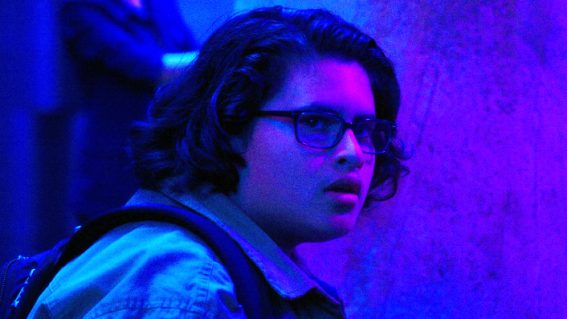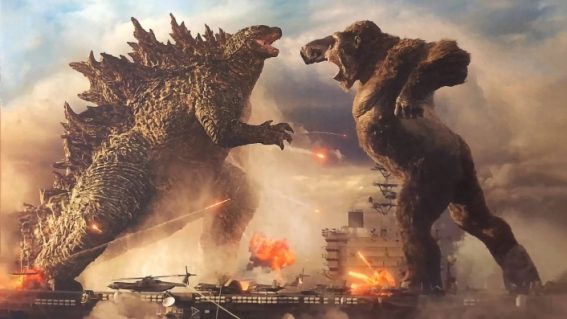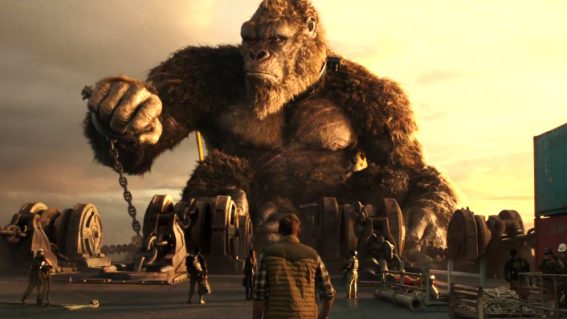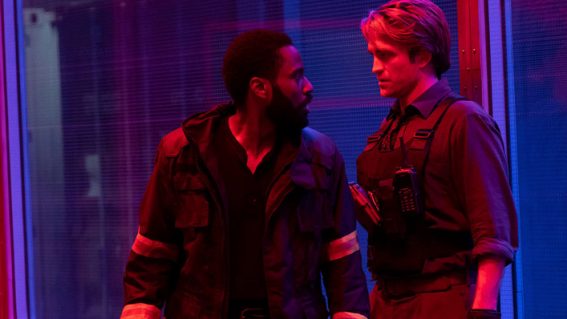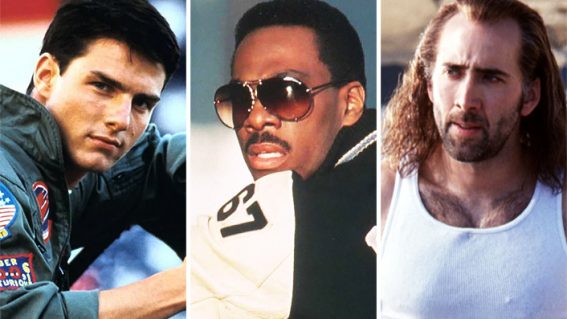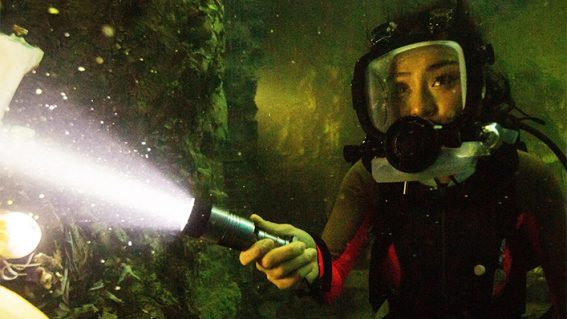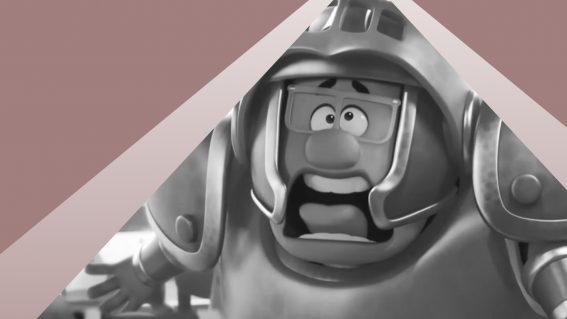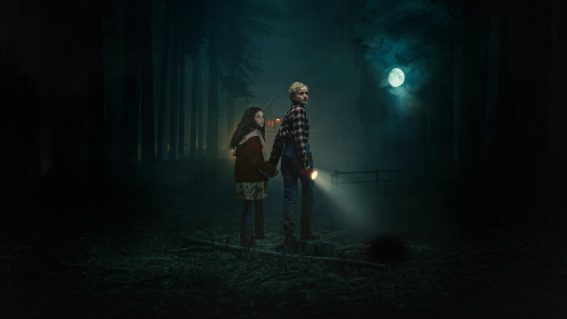In defense of Michael Bay, one of the best action auteurs working today
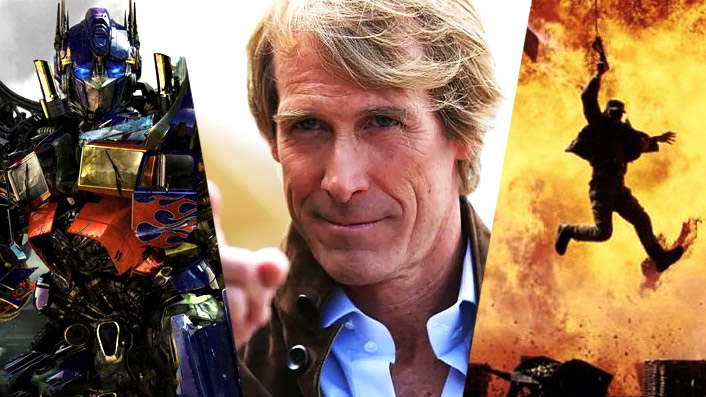
The Netflix action flick 6 Underground is another example of explosion-addicted director Michael Bay making movies for young hormone-addled men. But that doesn’t mean he isn’t a great action auteur, writes critic Travis Johnson.
Netflix recently delivered a dose of richly-deserved Bayhem in the form of 6 Underground, the ensemble action flick that sees Ryan Reynolds’ anonymous billionaire lead a team of specialists on a mission to depose a dictator. It’s the sort of thinly-sketched narrative that could underpin any of a dozen or so generic actioners, but in this case, it underpins an actioner directed by one Michael Benjamin Bay. Which made it, for my money, one of the best action movies of last year – a year not short of good ones.
Yes, that’s right – Michael Bay. He’s a great director. For real. He’s an auteur.
That doesn’t mean he’s going to be competing for Oscars any time soon – that ship has sailed. The Academy recently engaged in once more trying to explain why stunt performers aren’t worth a gold statuette, which gives us a clear insight into how poorly they regard action cinema. The critical fraternity is also no fan of St Michael – his feature directorial efforts have, at the time of publishing, an average rating of 39% on Rotten Tomatoes. His name is a byword for big, bombastic, flashy, hollow, exploitative action spectacle. The kind of films aimed at young, hormone-addled heterosexual men and the women who tolerate them. Four questions come immediately to mind: Yes? And? So? What?
Read it and weep: Michael Bay is an auteur
Bay’s films are all that and more, but they have a singular voice and vision, and that makes them far more interesting than the cookie-cutter blockbusters pushed out by Marvel and their imitators. It’s actually rare that a Taika Waititi or a Ryan Coogler can come along and raise their voice above the studio-mandated MOR hum that resonates through the vast bulk the MCU, but every Michael Bay film is a Michael Bay film. Even hamstrung by toiling within the juvenile Transformers franchise, Bay’s personal brand remains indelible.
You know a Michael Bay joint within seconds – his style, honed in the television commercial and music video trenches, is incredibly distinctive. He’s been criticized for shooting everything like it’s a car commercial but his critics seem to misunderstand the fact that his aim is exactly that: to make every film as glossy, eye-catching and bombastic as a 30 second Superbowl spot, designed to cut through high-falutin’ notions of taste and grab the viewer (and, as stated above, Bay’s ideal viewer is a teenage boy) by the ganglia.
Every shot is as dramatic as possible. Every camera move is a delirious swoop or pan or both. Every hero a hypermasculine hunk, every love interest (Bay doesn’t do heroines) a bodacious babe. Why have a car when you can have a sports car? Preferably shot at magic hour against a desert sunset, from a helicopter.
Budget is no object. Bay’s first film, 1995’s Bad Boys, cost $18 million, looks like it cost around twice that, and transformed Will Smith from a sitcom charmer to a bona fide movie star. His next flick, 1996’s The Rock, was literally more than three times the budget ($75 million) and kickstarted character actor Nicolas Cage’s action movie career (people tend to forget 1990’s “Top Gun with helicopters” effort Fire Birds, and so they should). While the scale of the action was increased dramatically, the style was unmistakably Bay’s.
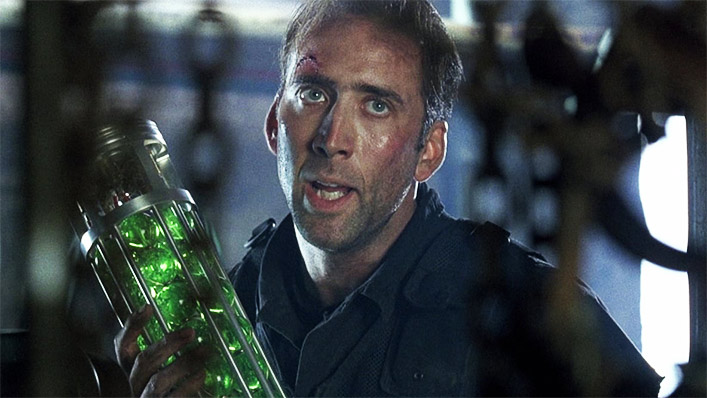
Indeed, Bay’s authorial voice is so distinct that it overrides all other considerations. Hired to helm 2001’s epic war romance Pearl Harbor, he tried to adopt a more classical style: long shots, complete coverage, composed framing. He lasted less than half a day; assistant director K.C Hodenfield would later recall that “by lunchtime we were making a Michael Bay movie.” While it was certainly to the film’s detriment, it is a tribute to Bay’s indomitable filmic instincts.
Which are hard won. If it was easy anyone would be doing it. And while Bay’s antecedents are obvious – two parts Tony Scott to one part old music video rival David Fincher, hold the artistic ideals – Bay’s imitators don’t have what he was. Simon West, who directed Nicolas Cage in 1997’s Con Air, is only one such lesser disciple. Consider Europacorp’s stable of journeymen (Louis Leterrier, Olivier Megaton, Xavier Gens, et al) or Bay protégé Jonathan Liebesman (Battle: Los Angeles, Teenage Mutant Ninja Turtles). They can take the same rote scenarios, the same pyrotechnics budget, the same stock actors, and come up short – the je ne sais Bay is missing.
That missing ingredient is, I think, nihilism. Or at the very least, a frighteningly deep well of misanthropy.
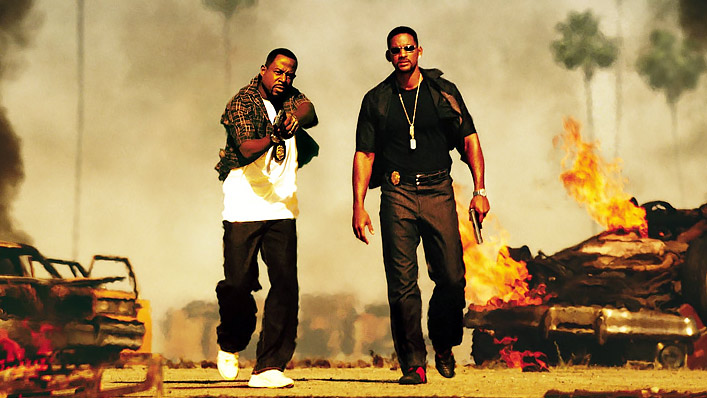
Nihilism and misanthropy: thy name is Bay
Bay often gets accused of misogyny. Ans yeah, his camera salivates over the scantily clad curves of the women in his films, but to single him out for that is to ignore the sheer contempt he holds almost all people in – the books are balanced in terms of gender. In Bay’s world, all are fallen, guilty, deserving of mockery at best, and straight-up execution at worst.
This really comes to the fore in Bad Boys II (2003), in which Will Smith and Martin Lawrence’s wisecracking cops are revealed downright sociopathic, shooting, swearing, and leering their way from Miami to Cuba, where they all but invade the communist country in a jaw-dropping display of the blunt, unsophisticated patriotism that tends to colour Bay’s works. It’s an audaciously ugly film, but a fascinating one. The sheer nihilistic glee on display is intoxicating, the spectacle of cars and carnage, broads and bullets shorn of almost all ethical and narrative substructure.
That’s the point. Bay mistrusts people (he is, by all accounts, very fond of animals) and the power systems they construct. People are weak, venal, lecherous, and cruel. Machines, on the other hand, you can trust – engineering is more reliable than psychology, hence the preponderance of gleaming cars, planes, and what have you in his films. The people he admires are professionals, often military, who have functions rather than personalities – their ability to do their jobs elevates them. And hell, if you wanted to draw parallels between the pneumatic, sculpted bodies of his characters and the smooth, robust curves of a sleek sports car or a fighter jet, the comparison is there to be made.
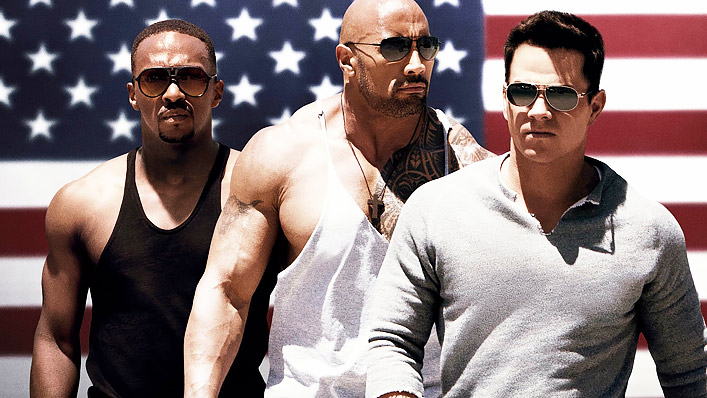
Pain & Gain fully expresses Bay’s ethos
But hey, at least it’s an ethos, as John Goodman’s Walter opined in The Big Lebowski, and Bay’s ethos gets its full expression in Pain & Gain, Bay’s 2013 tribute to the brothers Coen (Bay is an avowed fan of the Fargo fam, and has peppered his casts with members of their stock company, including Goodman, John Turturro, and Steve Buscemi). A kind of riff on Tony Scott’s True Romance, Pain & Gain is a caper comedy that sees three lunkhead fitness instructors (Mark Wahlberg, Anthony Mackie, and Dwayne Johnson) hatch a scheme to kidnap gym impresario Tony Shalhoud, only for it to go horribly, horribly wrong.
It’s a step above his usual fare up until that point, with Bay revealing that, for all that his films lionize militant masculinity, the proponents thereof are just as flawed and risible as everyone else. If you ever wanted to see The Rock barbecuing severed hands on a Weber grill, this is the movie for you.
It’s the movie for Michael Bay, too. What’s impressive about Bay’s body of work, his unarguable technical chops aside, is the way he shamelessly puts his id out there for all to see. This is the key to great art, folks – you can’t just do something well, you need to be saying something – empty spectacle only goes so far. Bay is saying something as loudly and as clearly as he can. If the message is repugnant, well, that’s in the eye of the beholder.
6 Underground is perhaps the ultimate expression of his artistic sensibilities. Yes, it’s a relentless, loud, defiantly OTT barrage of violence and glamour shots. But amongst all the spectacle, the director’s philosophies ring clear as a bell: people are venal and cruel, power is untrustworthy, function trumps psychology and, at the end of the day, explosions and gunfire are hella cool. It’s a bleakly cynical worldview, no argument, but the world would be a boring place if we only experienced art we agree with. Michael Bay, you mad, misanthropic, master of mayhem, we salute you.


